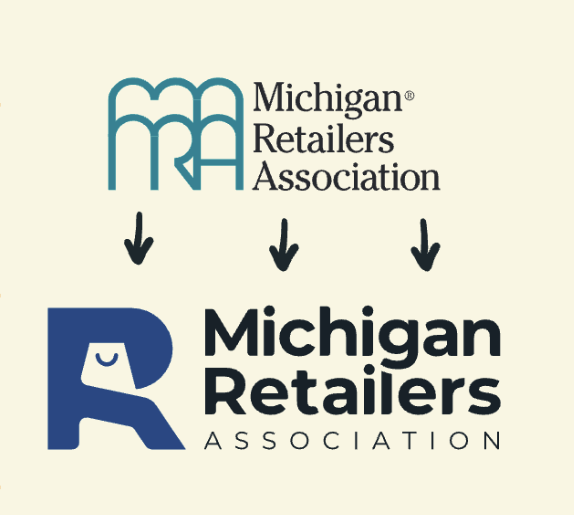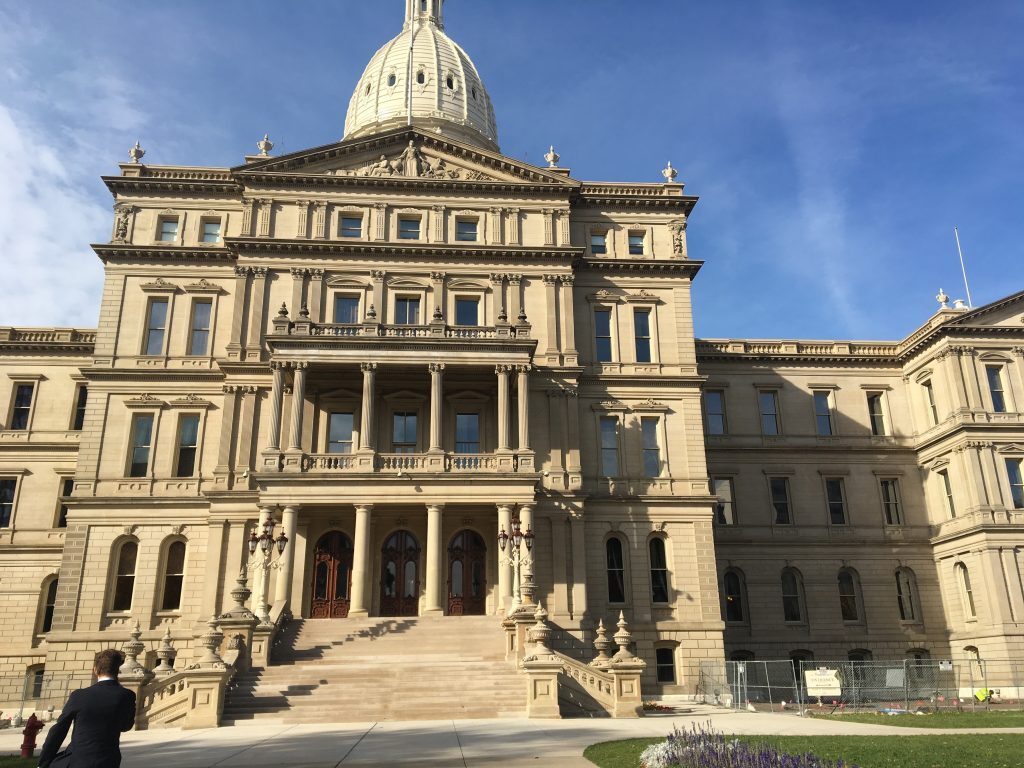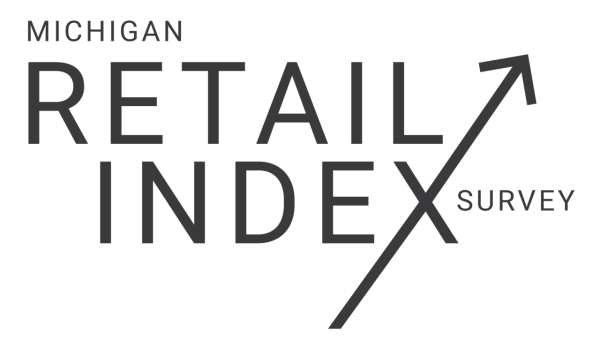Legislature leaves for summer break
This week the legislature adjourned for its annual summer recess. Well, mostly. Each chamber designates one session day in July and August in order to take up any urgent business that may arise during the break. The Senate is also scheduled to return Wednesday, June 28, to wrap up the sale of its old building and a few other items. MRA will send government affairs news updates on an as-needed basis throughout the summer recess. Regular updates will return once the fall session resumes after Labor Day.
Business incentive package tied up in politics
The House adjourned abruptly late Tuesday evening, failing to vote on a package of business incentives designed to lure large foreign companies to Michigan. The incentives (SB 242–243) are critically important to the governor’s economic development strategy. House Republican leaders made the call to head home without taking the anticipated vote, citing rumors that the governor may have cut a deal with Democrats. Republican leaders worried that the rumored deal could undermine House Republican priorities and insisted on waiting to hear from the governor, who was in France on an incentive trip. The House is scheduled to return for one day on July 12 and will likely reconsider the bill at that time. Next step: House vote. | MRA position: No position.
Budget headed to governor’s desk
While later than usual, legislators wrapped up work on the state budget, completing the last big item on their to-do list before summer break. Despite early reports of a strained process between the two chambers and the executive branch, it was relatively smooth sailing once leaders agreed to reforms to the current teacher retirement system. The final budget includes $35 million to fund infrastructure repairs, less than the governor originally asked for, but more than either legislative chamber initially approved.
Chambers swap opioid bills
After extensive committee debate, both chambers finally kicked out opioid reform packages in the final June session days. The bill packages earned nearly unanimous support in both chambers and should be taken up again in the fall. The House approved HB 4403, and 4405-4408 on June 13, while the Senate approved SB 47, 166–167, 270, and 273–274 on Thursday.
The House package would allow Medicaid to cover addiction treatment, require licensing of pain management clinics (in an attempt to shut down “pill mills”), give pharmacists greater legal immunity on refusing to fill questionable prescriptions, require appropriate grade-level education for students on opioid abuse as part of school health education programs, and require parental consent for opioid prescriptions for minors. MRA will seek an amendment in the Senate to add legal immunity to pharmacies as well as the pharmacist when filling questionable prescriptions under HB 4405.
The Senate package would require physicians to check the Michigan Automated Prescription System (MAPS) before writing a prescription, require prescribers have a bona fide physician-patient relationship before prescribing a Schedule 2 through 5 controlled substance and provide information on substance abuse services to patients being treated for an opioid-related overdose, and implement new prescribing limits on opioids for chronic and acute pain sufferers. Since the House and Senate bills are very different the chambers will likely continue to take their time carefully considering the reforms when the legislature returns in the fall. Next step: House and Senate committees. | MRA Position: Support HB 4405, neutral on the other bills.
Other important items to note:
- 500-foot rule: The Senate approved legislation, HB 4169, on June 15 that would grandfather in and codify the Michigan Liquor Control Commission’s (MLCC) current practice of sometimes waiving objections filed by churches or schools within 500 feet of a new beer and wine or liquor license applicant for licenses issued prior to March 1, 2017. Next step: Heads to governor for signature. | MRA Position: Support.
- Alcohol reforms: The Senate unanimously approved legislation that modifies the delivery and sign requirements allowed for beer, wine, and spirits as SB 356–358 on June 15. The chamber also approved HB 4556-4559 on June 15, which set new guidelines and penalties for unauthorized delivery and sale of alcohol and advertising display requirements. Next step: SB 356-358 heads to the House Regulatory Reform Committee. HB 4556-4559 heads to the governor for signature. | MRA Position: Support SB 357, no position on the other bills.
- Anti-skimmer gas pump protections: The Senate is expected to approve legislation next Wednesday that would require certain security measures to combat credit card skimmers on motor fuel pumps. SB 415 would allow a gas station to meet the new security measures by utilizing one or more of the following options: tamper-proof tape with customized graphics placed over the opening of the panel, a device to render the pump inoperable if the panel is opened without authorization, a scanner device that encrypts payment information (chip-enabled devices), changing the standard locks on pumps or any other means approved by the Department of Agriculture and Rural Development. A roll of customized security tape costs approximately $20-30 while changing the standard-issue locks costs approximately $10/lock. Next step: If approved next week, the legislation would then head to the House for consideration this fall. | MRA Position: Neutral.
- Michigan Craft Beverage Council membership and duties: The House Regulatory Reform Committee reported out legislation on June 14 that seeks to expand membership on the newly renamed Michigan Craft Beverage Council (formerly known as the Grape and Wine Council) and the duties of the council. HB 4667 would expand the council to include a nonvoting position for a retailer with an SDM license or a restaurant that holds a Class C license. This is in addition to the current voting position on the council for a retailer holding an SDM license who sells Michigan wines or beers. Under the expanded duties, the council would be required to provide information on proper handling and selling of hops, barley, beer, and spirits to retailers and other alcohol-related industries. The committee amended the bill to allow for a business owner or his/her designee to serve on the council. Next step: House floor. | MRA Position: Neutral.
- Noncompete agreements: HB 4755, introduced June 14, would prohibit employers from requiring low-wage employees (those receiving less than 150% of the minimum wage, $15 an hour, or $31,200 annually) to sign a noncompete agreement. The bill would also require an employer to disclose the requirement to sign a noncompete agreement in writing before hiring the employee. Next step: House Commerce and Trade Committee. | MRA Position: Under review.
- Training and youth wage: Legislation that would repeal the training wage and youth wage was introduced as HB 4803 on Tuesday. The bill would require employers to pay all employees no less than the minimum wage. Under current law, employers can pay 85 percent of the state’s minimum wage to employees under age 18 and $4.25 to employees under age 20 for the first 90 days of employment. Next step: referred to the House Commerce and Trade Committee. | MRA Position: Oppose.
- 90-day prescriptions: Revised legislation to allow pharmacists to dispense a 90-day supply of medication so long as the prescription allows for enough refills to fill a 90-day supply was unanimously approved by the Senate on Thursday. SB 360 ensures that pharmacists will not have to call the prescriber for approval as currently required by some insurance plans. The bill was modified to ensure pharmacies can also fill a longer-than 90-day supply if needed. It also includes language used in Ohio that requires consultation with the patient prior to dispensing more than a 30-day supply. Next step: likely heads to the House Health Policy Committee for consideration this fall. | MRA Position: Support.
- Drug delivery: Legislation that provides additional penalties for persons who deliver schedule 1 or 2 controlled substances in a manner that violates the Public Health Code and causes serious injury was introduced as SB 460 on June 14. Next step: Senate Judiciary Committee. | MRA Position: Under review.
- Energy standards: Legislation introduced on Wednesday as SB 475–476 would update renewable energy portfolio standards and increase energy optimization standards as well as eliminating caps on standards. Next step: Senate Energy and Technology Committee. | MRA Position: Under review.
- Free birth control: Legislation that would require health insurance policies that include coverage of prescription drugs to provide various methods of birth control to employees at no cost was introduced as SB 458 on June 14 and HB 4799 on Tuesday. Next step: Senate Insurance Committee and House Health Policy Committee respectively. | MRA Position: Under review.
- MIOSHA update: Legislation that seeks to bring the Michigan Occupational Safety and Health Administration into compliance with federal law was introduced Wednesday as SB 479. The bill adopts the maximum penalty levels based on cost of living adjustments required by Congress in 2015. Without the legislation, businesses could see higher costs if forced to operate under the federal plan. Next step: Senate Commerce Committee. | MRA Position: Under review.
- Parental leave for school activities: Legislation introduced as HB 4764 would require all businesses to provide employees with up to eight hours of unpaid leave time per student per academic school year for parents and legal guardians. The unpaid leave time must be requested at least seven days in advance and could be used to participate in parent teacher conferences, tutoring, or other educational activities. Next step: House Commerce and Trade Committee. | MRA Position: Under review.
- Sales/use tax on vehicle trade-in price difference: The House approved legislation on Tuesday that would speed up a 2013 law allowing car dealerships to only charge sales tax on the portion of the vehicle purchase paid with cash or credit and not on the trade-in value. The 2013 law eliminated the sales and use taxes on the difference over 25 years, fully phasing it out by 2039. SB 94–95 seeks to speed up that timeline over the next 10 years to fully eliminate the added tax by 2029. Next step: headed to the governor’s desk. | MRA Position: No position.
- Tribunal procedures: The House amended and approved legislation Tuesday that would make various revisions to the Michigan Tax Tribunal. The House stripped HB 4412 of a troublesome amendment that would have required taxpayers to file all expert valuation disclosures within four months of filing an appeal. Next step: Senate Finance Committee. | MRA Position: Neutral after committee amendment was removed.
- Auto theft prevention assessment: The governor approved a new law expanding the current $1/car Automobile Theft Prevention Authority (ATPA) fee charged on private, passenger vehicles to commercial vehicles, as well as vehicles insured for only part of the year. SB 168 was signed into law as Public Act 58 of 2017 on June 15 and took effect the same day. A 2015 Attorney General Opinion found that the ATPA could assess fees on all insured motor vehicles. MRA Position: No position.
- Security alarm license exemptions: The House approved legislation on June 15 that would allow businesses to install and service certain security systems without needing an electrician’s permit, security alarm license, and construction code permit. HB 4654–4655 reflect new technology that allows businesses to remotely monitor the premises through audio, video, or sensor detection. Next step: Senate Regulatory Reform Committee. | MRA Position: Support.






